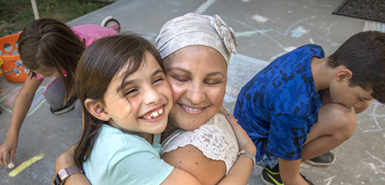
The star recently revealed details of the procedures in a candid and deeply touching opinion piece published in the New York Times.
Jolie explained the sequence of events in the op-ed titled “Angelina Jolie Pitt: Diary of a Surgery,” which was a continuation from the piece she wrote two years ago, sharing the news of her double mastectomy to prevent the onset of breast cancer.
Jolie is said to carry a genetic mutation, BRCA1, that significantly increases the risk of ovarian cancer, making her a candidate for preventative surgery.
Health Beat sat down with a few experts from Spectrum Health to get their take on preventive surgeries for at-risk women.
“We like to call these sorts of procedures the Jolie Effect,” said Judy Smith, MS, EPE, FACS, department chief of oncology at Spectrum Health’s Regional Cancer Center.
Dr. Smith noted that the hospital saw an uptick in similar elective, preventive procedures when Jolie first had her mastectomy two years ago and expects the same might be true in the coming months with this recent publicity.
Julian Schink, MD, chief of Women’s Health at Spectrum Health Medical Group, chimed in with his thoughts on the issue.
“Angelina Jolie’s heroic disclosure of her very personal journey could save thousands of lives,” Dr. Schink said. “She is courageously raising awareness about inherited breast and ovarian cancer, and the important and difficult steps that she and other women have taken to prevent this often fatal cancer. We are oncologists, but we would much rather prevent cancer than treat it.”
Leigh Seamon, DO, MPH, a gynecologic oncologist at Spectrum Health, agreed.
“We recommend patients consider risk reduction surgeries between the ages of 35 and 40, and upon the completion of child bearing. This could also be individualized based the earliest onset of age of ovarian cancer in their family. Some women complete child bearing at an earlier age and may choose to undergo surgery earlier, depending upon their family history. I completely support this decision and see it as a proactive approach.”
Three patient populations who should consider this genetic testing and counseling include:
- Anyone who is diagnosed with epithelial ovarian cancer, fallopian tube cancer or primary peritoneal cancer
- Patients who do not have cancer, but have a family history of cancer or close family member with ovarian, fallopian tube, or primary peritoneal cancer (mother, sister, daughter, etc.)
- Anyone who has had breast cancer may also be at risk and should speak with their physician
 /a>
/a>
 /a>
/a>
 /a>
/a>